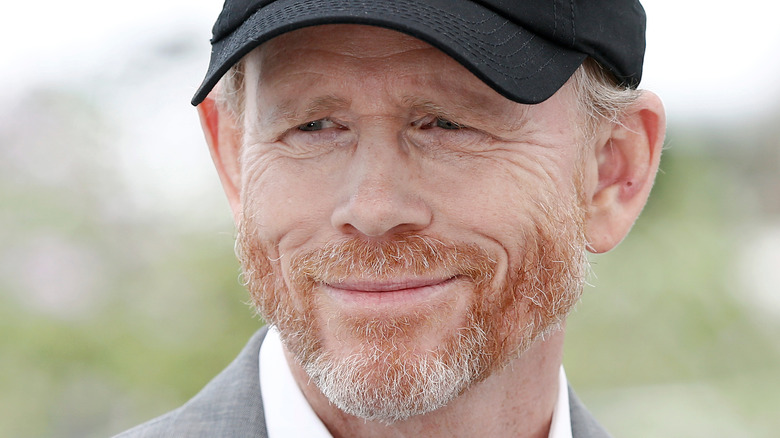
When it comes to directors with impressive resumes, none are quite as fascinating as Ron Howard. Howard has dipped his artistic toes into many cinematic ponds: Oscar-winning dramas, all-out comedies, extravagant fantasies, and more. Plus, Howard has worked with some of the most talented individuals in the businesses, including Tom Hanks, George Lucas, Tom Cruise, Russell Crowe -- the list just goes on and on. With his ability to take risky projects and turn them into crowd-pleasers, Howard has proved he's more than just the guy who played Richie on "Happy Days."
Yet, with such an impressive filmography (and we're not even counting his documentaries, TV work, or shorts), it can be hard to decide which movies of Howard's to watch. But have no fear -- this list is here to solve such a dilemma. Starting with the not-so-great and going all the way to the best-of-the-best, let's take a look at the feature-length narrative films that have made Ron Howard the powerhouse director he is today.
The Dilemma
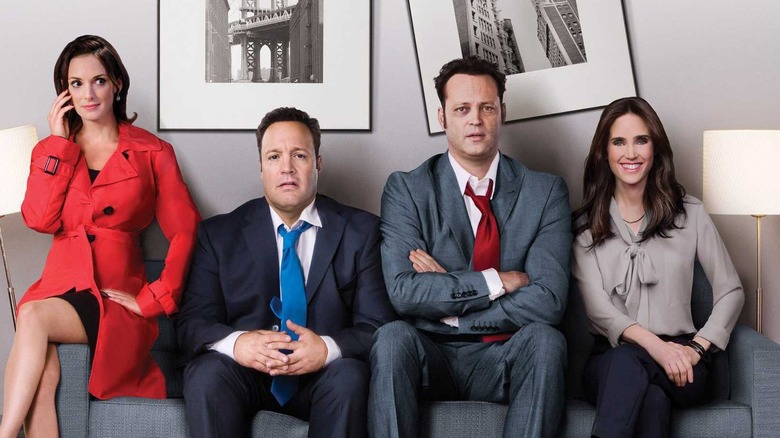
While it features a dynamite cast, 2011's "The Dilemma" is easily the messiest movie on Howard's filmography. The premise is simple: Ronny (Vince Vaughan) sees the wife of his friend Nick (Kevin James) making out with another guy, leaving Ronny in a moral pickle. Should he tell his best friend what's going on in his marriage? While the concept is interesting on paper, Howard's execution is nothing short of confusing.
With a first act that plays by the typical rom-com guidebook, followed by a second act drenched in drama, "The Dilemma" is a classic example of a movie that has no clue what it wants to achieve. And while "The Dilemma" does have a surprising performance by Channing Tatum, along with entertaining work by Vaughan, James, and Jennifer Connelly, the movie ultimately lacks Howard's usual focus and charm, resulting in a final product that is as vanilla as it is strange.
Hillbilly Elegy
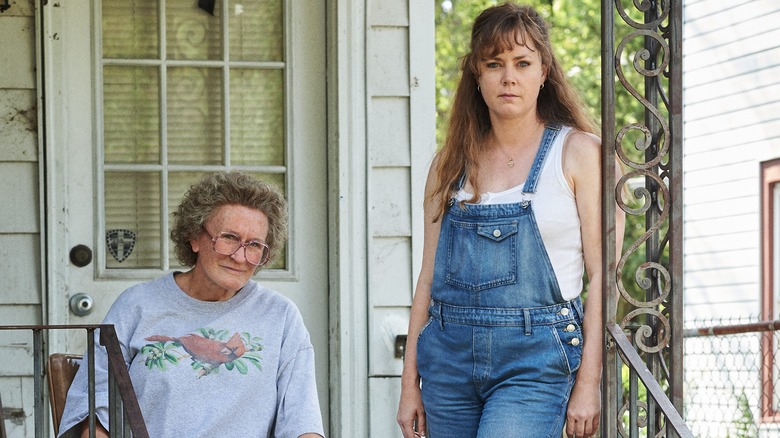
Howard's most recent feature film, "Hillbilly Elegy" is a book-to-movie adaptation based on the bestselling memoir by J.D. Vance. The story depicts J.D.'s life through significant events, detailing the drama within his Appalachian family, including his mother (Amy Adams) and grandmother (Glenn Close). While the film features a cast full of powerhouse performers, Howard doesn't know the correct way to bring this unique family to life on the big screen without making it cringeworthy.
With over-the-top performances that make the characters feel like condescending stereotypes and result in one-dimensional portrayals, "Hillbilly Elegy" is an almost cartoonish take on what otherwise could have been a captivating story to watch on screen. As it is, it comes across like a parody of an Oscar-winning film inside of a Christopher Guest sketch. With talent like Glenn Close leading the charge, it's frustrating to see the potential in "Hillbilly Elegy" fall to the wayside.
Inferno
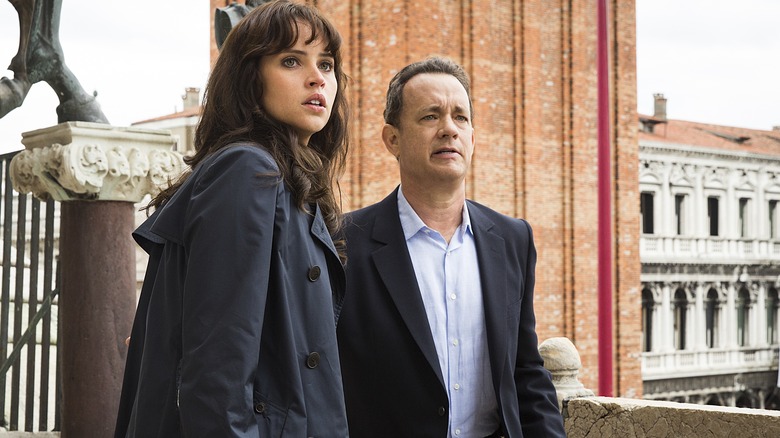
Many of Ron Howard's Dan Brown adaptations are flawed from top to bottom, but if there's one movie in the bunch that sticks out as the worst, it's easily "Inferno." Starring series regular Tom Hanks as the heroic Robert Langdon, this entry in the trilogy focuses on (what else?) a mystery involving a possible plague that has ties to "Dante's Inferno." While that concept could be fun, it's hard to ignore the clunky and ultimately dull nature of this supposed thriller.
Between the outright bizarre opening, in which Robert hallucinates in some unintentionally hilarious ways, to the clumsy special effects, "Inferno" comes across as a movie that Howard didn't quite know what to do with. While it can be fun to see Tom Hanks piece together clues, you can tell the director's heart isn't in the right place. It makes the film a chore to sit through.
In The Heart Of The Sea
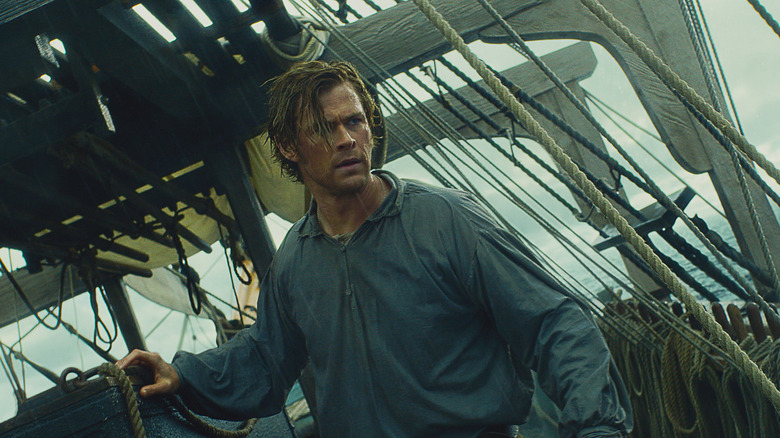
Despite its length, it seems like Hollywood can't find any new angles on "Moby Dick." "In The Heart of the Sea," in which Howard (along with screenwriter Charles Leavitt) adapts Nathaniel Philbrick's non-fiction book about the event that inspired Herman Melville's classic novel, is an exception. However, while that story might sound fascinating, Howard drives this cinematic ship into some ultimately bland waters.
Slogged down by its clumsy pacing, Howard seems more interested in the human struggle of the ship's crew, as opposed to what most audiences want to see in a movie like this: grand, exciting, whale-sized naval adventures. Even Chris Hemsworth and Cillian Murphy's impressive talents can't make up for Howard's dull approach. "In The Heart of the Sea" should be just as appealing to viewers as it was to Melville, but Howard's movie, while visually striking, doesn't have the grandeur the subject material deserves.
How The Grinch Stole Christmas
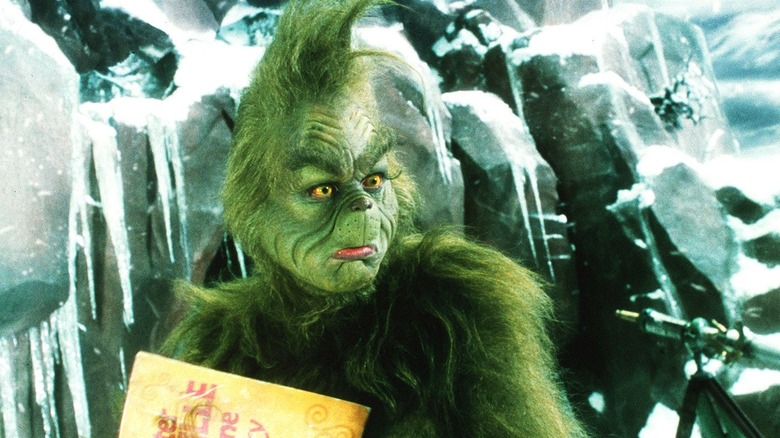
Though many consider it a Christmas classic, Howard's live-action adaptation of the iconic Dr. Seuss book is a chaotic film. From casting Jim Carrey as the title character to a tone that shifts dramatically during the movie, "How The Grinch Stole Christmas" might be an entertaining movie, but that doesn't save it from its worst blunder: its mean-spirited nature.
While Dr. Seuss' work has a cynical layer, screenwriters Jeffrey Price and Peter S. Seaman go out of their way to avoid the warmth of the original story. Similarly, Ron Howard's direction seems to be consumed by Carrey's wacky performance, making him forget the moral of the tale. When that's mixed with slapstick comedic bits, Rick Baker's excellent (yet creepy) make-up, and awkwardly adult material, "The Grinch" seems more like an excuse to take risks and show off on a technical level than a real effort to pay homage to Seuss' timeless story.
The Missing
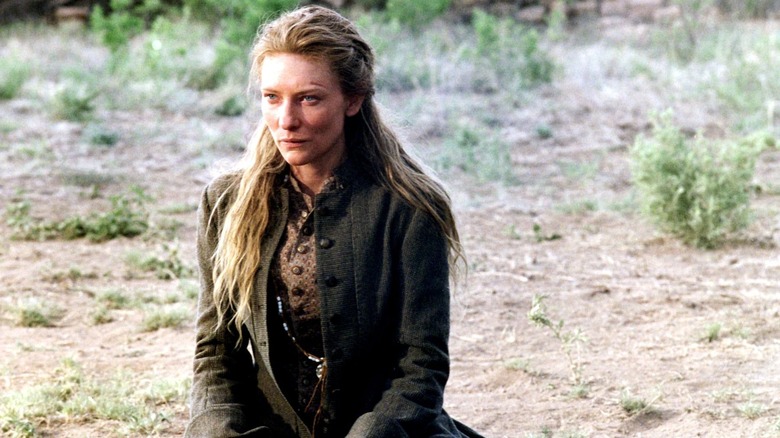
Released in 2003, "The Missing" stars two unique talents (Cate Blanchett and Tommy Lee Jones) in a movie that is way below their and Ron Howard's abilities. The story, based on true events, revolves around a renegade group of Native Americans who steal young girls and sell them into slavery. Yet, unlike other similar tales of ladies in need of rescuing, this revisionist Western leaves it up to a woman, her estranged father, and her youngest son to save her teenage girl from harm.
While Howard tries to push the plot in a modern direction, "The Missing" ultimately fails due to its lackluster approach to an otherwise interesting story. And while it's nice to inject a female perspective (and empowerment) into a genre that desperately needs it, "The Missing" is an example of a movie that -- yet again -- doesn't have the confidence or focus of Howard's best work, resulting in a sometimes frustrating piece of cinema.
The Da Vinci Code
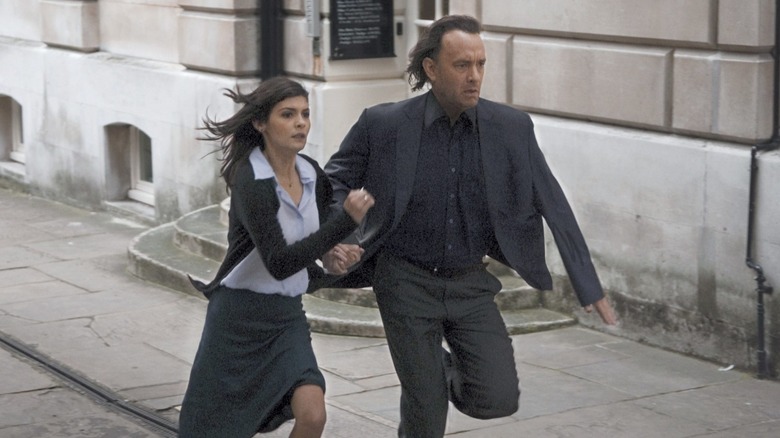
While there certainly have been worse book-to-movie adaptations, Ron Howard's take on the best-selling "The Da Vinci Code" is as awkward as the novel is entertaining. First, casting Tom Hanks as Robert Langdon remains an odd choice, especially considering how Hanks' good-natured, all-American persona doesn't mix well with Langdon's calculated demeanor. Secondly, the film drags through its almost 3-hour runtime, making it an absolute struggle to get through.
But the movie's biggest flaw are the confusing tonal shifts, especially the direction of the film's more significant sequences. Some moments are shot almost like a horror movie, lingering on the terrifying nature of what's taking place. Then, other moments are downright whimsical; they feel like something out of a Disney film. When mixed with lackluster pacing, mountains of exposition, and the bland performances of some of its cast, "The Da Vinci Code" is quite a forgettable treasure hunt.
Angels & Demons
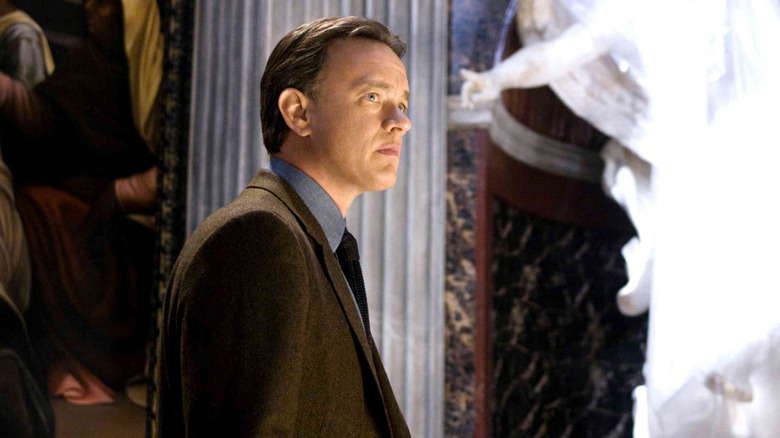
The second of Howard's Dan Brown adaptations, "Angels & Demons" is another Robert Langdon yarn full of religious imagery, mystery, and ridiculous information dumps. But what makes "Angels & Demons" significant in this trilogy is its inclusion of an over-the-top battle between the Illuminati and the Catholic Church. And while Howard does spice up this movie in comparison to its predecessor, the end result is as odd as the first installment.
Although "Angels & Demons" has more likable qualities than "The Da Vinci Code," including an even better cast and stronger pacing, it still suffers from the same issue as all of Howard's Dan Brown movies: there's too much. Too much exposition, too much focus on scenes between characters without any chemistry, and too much questionable CGI. It's commendable that Howard put a bit more effort into making this one entertaining, but "Angels & Demons" is far from a home run.
Solo: A Star Wars Story
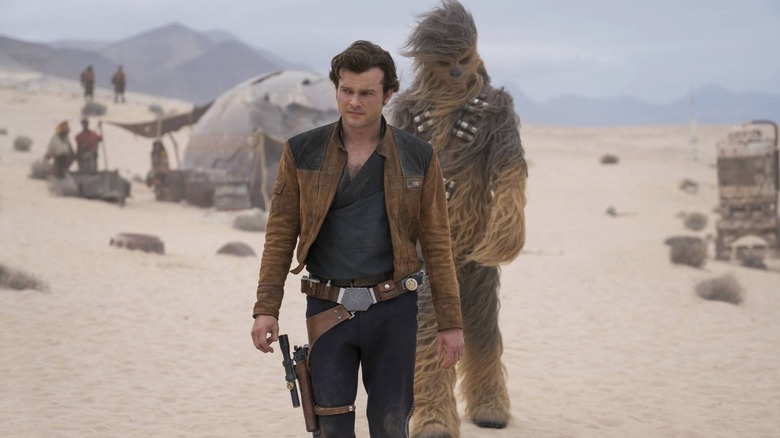
While it wasn't originally his project, Ron Howard's work on "Solo: A Star Wars Story" is ultimately confusing. From the get-go, you'd think that a buddy adventure featuring rebellious outsiders would be right in Howard's wheelhouse. And when considering the already established canon of Han Solo, along with Howard's previous work with Lucasfilm, it would seem like a perfect match between director and the material. But whether it was because of the tight production schedule or other behind-the-scenes struggles, Howard's "Solo" plays by the books in the most vanilla of ways.
From the botched execution of the opening sequence to the almost forced attempts at making this film the first in a line of "Star Wars" films featuring established characters, "Solo" is a movie that seems more made by committee than it is by Ron Howard. And while that isn't surprising, considering all of the behind-the-scenes drama, it's still sad to see a movie that lacks the energy of Howard's stronger work.
Far And Away
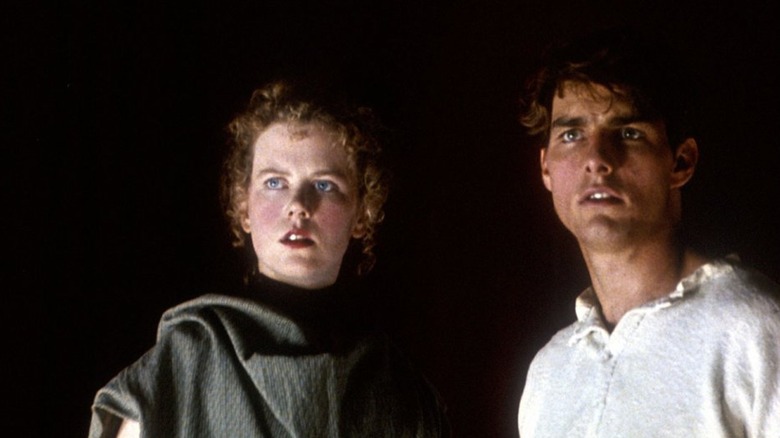
With its sweeping visuals and lush romantic aesthetics, "Far and Away" has quite a legacy. Not only is it remembered for its 140-minute runtime, but it also stars the then-real life couple Tom Cruise and Nicole Kidman. And while the stars' off-screen relationship didn't last, the timeless quality of their on-screen chemistry in this movie never seems to fade.
Yet, if you push Cruise and Kidman's fantastic teamwork aside, what "Far and Away" is left with is a clunky three-act structure, some hilariously questionable Irish accents, and subplots that grind the film to a halt. Still, it's delightful to see how much Howard thrives making lush period dramas, especially during the film's memorable battle sequences. Although it's a flawed effort, Howard's achievements here outweigh the film's clumsier elements.
Grand Theft Auto
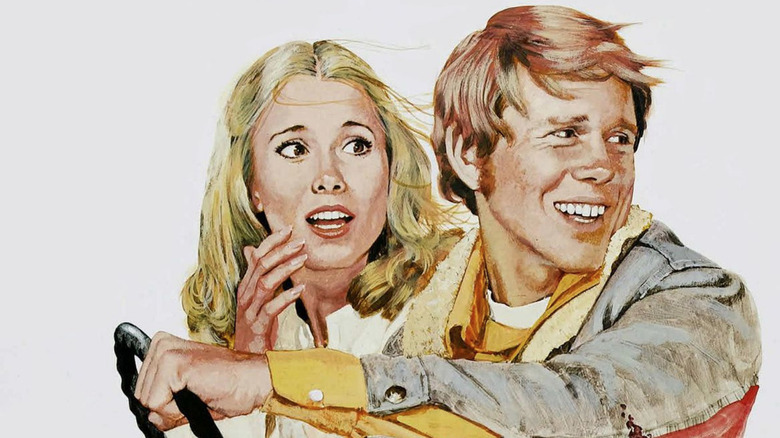
Ron Howard's first film (and the only one he stars in), "Grand Theft Auto" revolves around a young couple, Sam and Paula (played by Howard and Nancy Morgan), who want to get hitched in the wildest of cities, Las Vegas. But when Paula's parents denounce their daughter's plan to marry Sam, who they think is a gold digger, the pair run away in Paula's parents' Rolls-Royce. As you can probably guess, hijinks ensue as the two lovers race towards marital bliss.
Right from the get-go, "Grand Theft Auto" has a sort of indie movie charm to it. With an endless stream of Howard family and "Happy Days"-related cameos, the film contains a scrappy yet delightful energy that is hard to ignore. However, even with all of its entertaining silliness, "Grand Theft Auto" is utterly forgettable. While it's nice to watch the evolution of Howard from this movie onward, let's celebrate how much he's improved since he first hit the cinematic road.
Gung Ho
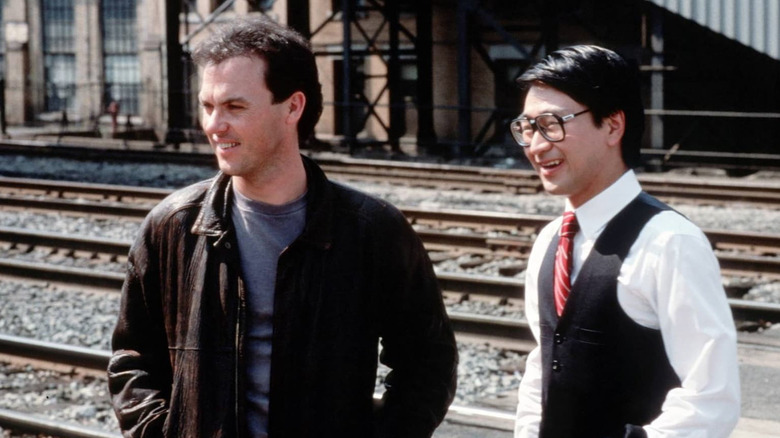
Pairing Howard with his frequent '80s collaborator Michael Keaton, "Gung Ho" is a comedic look at what happens when an American auto manufacturing plant is acquired by a Japanese company. A business deal that seems like a great move at first slowly becomes a test of cultural differences for everyone involved. The result? A film that has its heart in the right place, yet focuses (like many movies of the '80s do) on the "weird" behavior of its Asian characters.
Sure, there's no denying that Ron Howard's signature blend of quirky yet sweet storytelling ultimately works. However, "Gung Ho" is yet another example of how Hollywood went out of its way to make Asians ridiculous caricatures in the '80s. And although the film contains a fantastic performance by Gedde Watanabe, who elevates the questionable script, that doesn't save this movie from becoming even more dated as the years go on.
Ransom
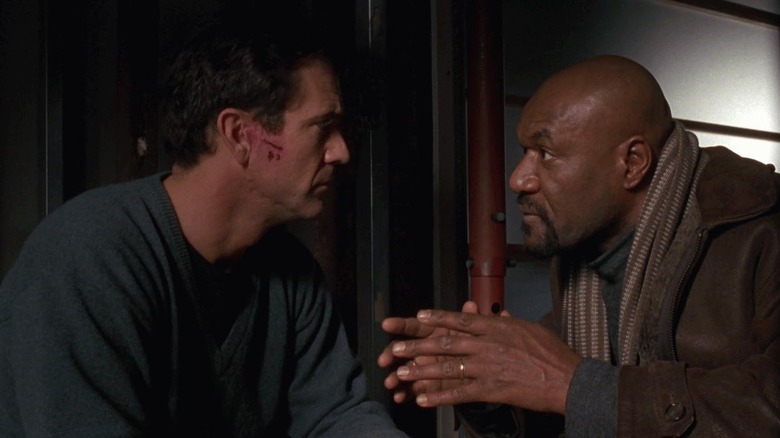
Starring Mel Gibson, Rene Russo, and a plethora of other talented individuals, "Ransom" (a loose remake of 1956 film) tells a fascinating tale that weaves together kidnapping, crooked cops, and family drama. When combined with Ron Howard's under-appreciated talent for capturing intensity in even the most mundane scenes, you get a movie that evokes the typical '90s thrillers in an entertaining way.
But the biggest problem with "Ransom" is what Howard chooses to focus on. Sometimes, he lingers too long on the kidnappers' cruelty. At others, action sequences lack any cinematic punch. It's a treat to see Howard ramp up the stakes as the film progresses, but his chaotic storytelling doesn't always benefit the narrative. Still, with a cast that includes the incredible Delroy Lindo, it's almost impossible not to have a good time with this Golden Globe-nominated blockbuster.
Night Shift
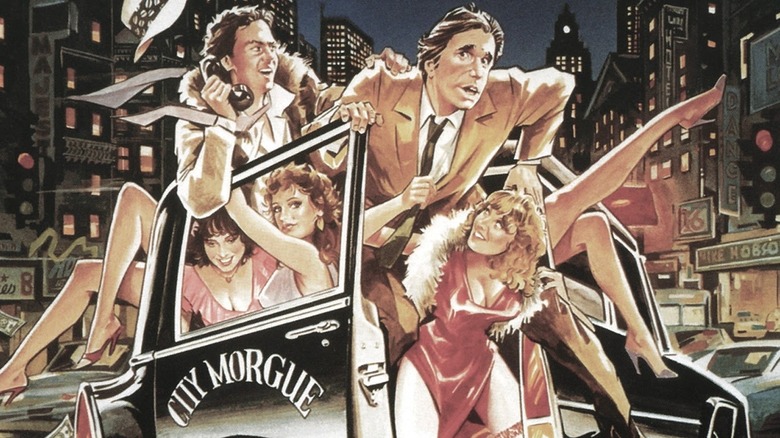
The first of Howard's three collaborations with Michael Keaton, "Night Shift" is a movie with an odd premise but an equally fun payoff. The story revolves around two morticians, one a timid employee (played by Howard's "Happy Days" co-star, Henry Winkler), and the other his charismatic co-worker (Keaton) who wants to take risks and shake up the establishment. His plan? To start a side hustle by running a prostitution ring out of the morgue. As one could guess, this results in some ridiculous, sitcom-level hijinks.
Although definitely not as good as many of Howard's future films, "Night Shift" is a great place for the then-young director to jump into the world of comedy. "Night Shift" doesn't contain the same laser sharp timing and focus of Howard's other laugh-a-minute productions, but the movie (written by Lowell Ganz and Babaloo Mandel) does show off Howard's budding talent in some wacky, off-beat, and ultimately memorable ways.
Backdraft
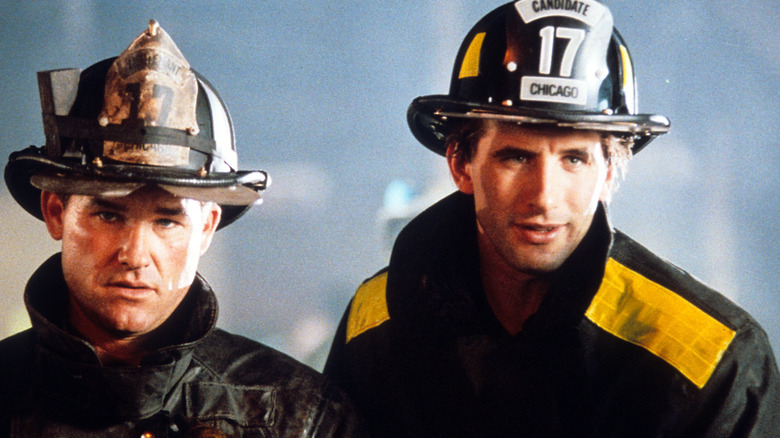
Known by theme park fans as the movie that inspired a Universal Studios Hollywood attraction, "Backdraft" is a blockbuster that, despite its wild plot, retains a down-to-earth tone throughout its 137-minute runtime. It depicts the lives of two firefighting brothers, played by Kurt Russell and William Baldwin, who (along with their fellow coworkers and Robert DeNiro as a criminal investigator) are hunting down a serial arsonist.
While Howard seems to want "Backdraft" to be a movie about the personal relationships among a team of firefighters, Gregory Widen's script drives the story more towards an edge-of-your-seat blockbuster. That's a shame, because with Howard's excellent emotionally-driven direction, this could have been a really unique slice-of-life picture. Still, "Backdraft" (and Howard) really excel at bringing the film's devastating fires to life, making the natural element a villain that you can't take your eyes off of.
EdTV
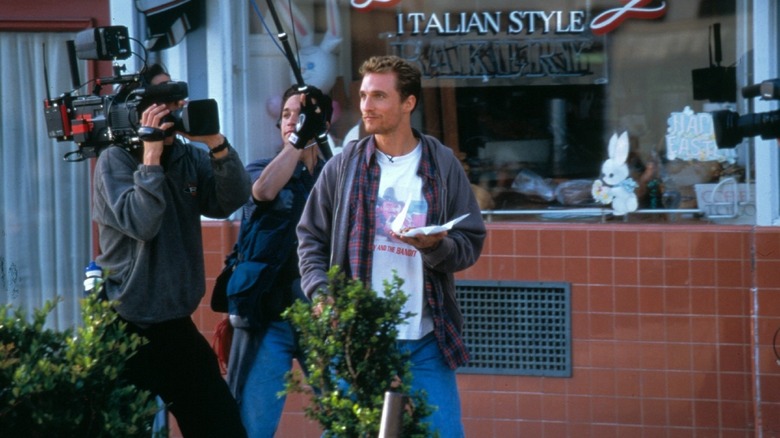
Released before reality TV shifted into its current form, "EdTV" tells the story of a simple guy, Ed (played by Matthew McConaughey), who gets picked to be the focus of a documentary TV series that details every moment of his life. The film then follows the public's fascination with Ed's romances, family, and the silly (yet ultimately truthful) drama that comes from becoming an entertainment fixture.
Though at its core it's a traditional rom-com, "EdTV" is a unique little movie that predicted trends in pop culture in fun and innovative ways. Although it might not be as thought-provoking as the "The Truman Show," which has a similar premise and came out around the same time, Ron Howard presents a quirky look at the TV industry that should be recognized more for its successes than its failures. Sure, at times, "EdTV" is a bit too ridiculous for its own good, but deep down, it's a movie that took some fascinating risks, ones that Howard should be remembered for.
A Beautiful Mind
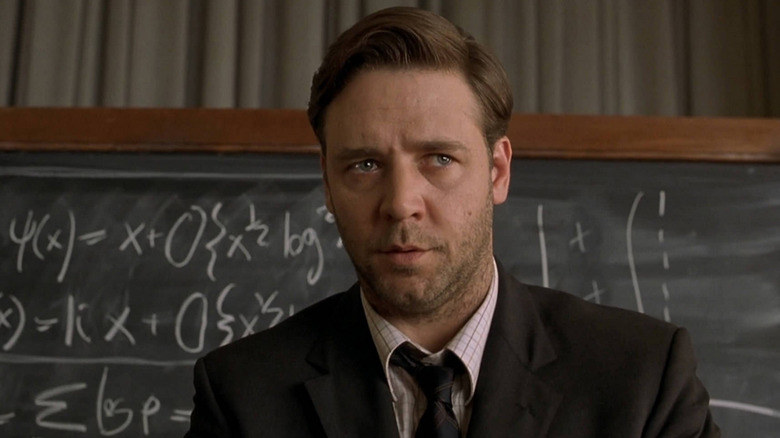
These days, "A Beautiful Mind" is a movie that seems to be best remembered for its Academy Awards wins (including one for Howard, who scored the Best Director trophy) instead of the film itself. Detailing the life of American mathematician John Nash, the film attempts to give its audience a glimpse into the complex mind of its lead protagonist. With incredible performances by both Russell Crowe as Nash and Jennifer Connelly as his wife, this movie is the stuff of dramatic legend.
While perhaps not the most innovative biopic out there, "A Beautiful Mind" checks all of the right Oscar-appropriate boxes in both its narrative and its execution. It leaves audiences feeling just as inspired yet confused as Nash himself -- an element of the film that Howard pulls off brilliantly, bringing all of the different pieces together just as he pulls the rug out from under the viewer. Combined with a memorable score by James Horner, "A Beautiful Mind" is a shining example of the kind of quality work that Howard can create.
The Paper
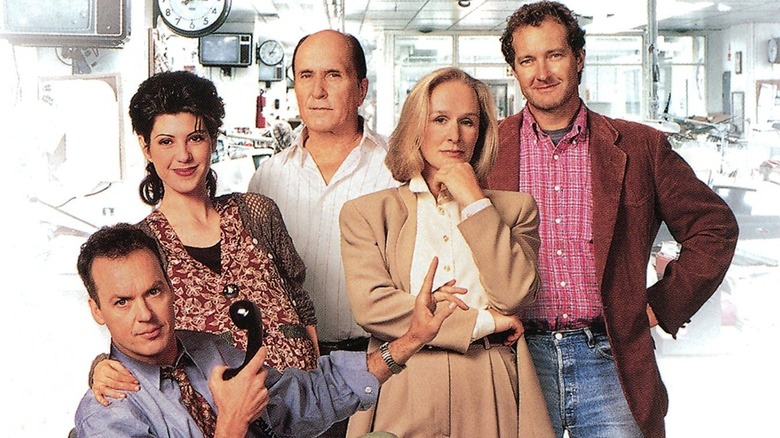
Alongside a star-studded cast of Hollywood greats, Michael Keaton leads "The Paper," a fast-paced comedy-drama centered around the world of competitive journalism. The plot focuses on the murder of a group of businessmen visiting New York City, and examines the chaotic lives of those who cover the story for a tabloid paper. When the reporters discover that a police cover-up might be taking place behind the scenes, an already wild day gets even wilder.
Written by David and Stephen Koepp, there's a sharp and biting edge to "The Paper," one that Ron Howard captures with great excitement from start to finish. At times, "The Paper" feels a little a bit like Aaron Sorkin-lite, yet like any great Ron Howard movie, there's a humble aspect to the story's emotional core that's hard to dismiss. While "The Paper" might not be the most groundbreaking movie about journalism, it certainly is one of the most entertaining.
Cinderella Man
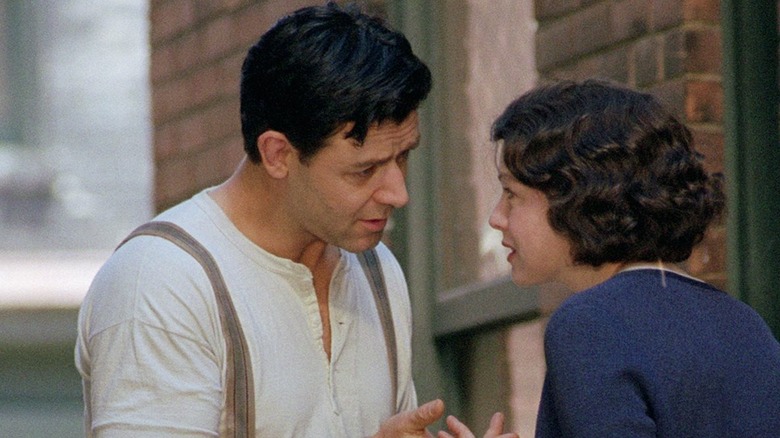
While some consider it the lesser of Ron Howard's collaborations with Russell Crowe, "Cinderella Man" is another period drama that deserves more recognition than it has received. The film details the true story of Jim Braddock, aka "The Bulldog of Bergen," a boxer who rose to the top just as quickly as he fell, but then climbed right back up to the top again (hence, the fairy tale reference in the title). "Cinderella Man" may not be the boldest boxing movie ever to exist, but it is certainly the most heart-wrenching, all thanks to Howard's emotionally-charged directing.
Featuring fight sequences that focus more on the characters' tears than their sweat, Howard does a fantastic job of capturing every nuance of his talented cast, especially when they are out of the ring and fighting against real-life struggles. Some aspects of the movie play by the Oscar-drama handbook at times, but for the majority of its run, "Cinderella Man" is a unique little movie that's earned more credit than it gets
Cocoon
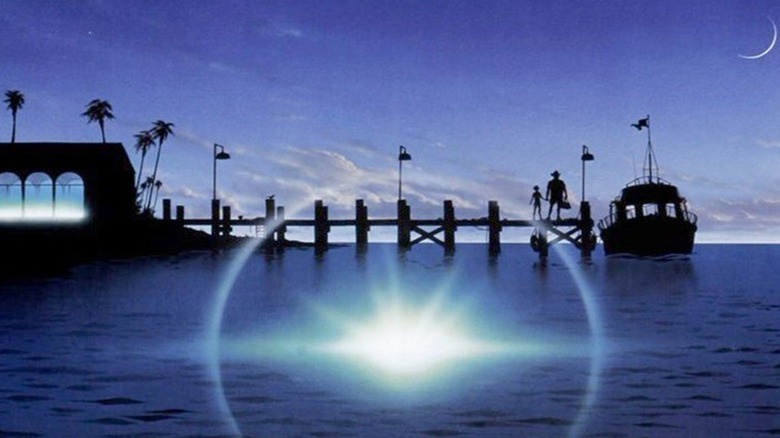
With an unlikely cast full of incredible character actors, "Cocoon" definitely ranks among Howard's most memorable films. Its plot focuses on a group of senior citizens who gain youthful energy because a group of aliens left cocoon-like structures at the bottom of their pool. There's a little bit more to it than that, of course, but the heart of the movie is what Ron Howard does best -- a celebration of all of the characters' humanity.
Despite a somewhat out-there premise, the magic of "Cocoon" is in the performances that Howard captures. From Brian Dennehy's mysterious yet warm work to the hilarious and good-hearted talents of Don Ameche, Wilford Brimley, and Hume Cronyn, every actor in "Cocoon" really goes above and beyond, elevating what could have been a very silly movie. Howard makes it impossible not to fall for these characters and get swept up in the story at hand. The presentation of the aliens is very '80s, the musical score by James Horner is delightful, and there's an obvious charm to "Cocoon" that will never truly fade.
Splash
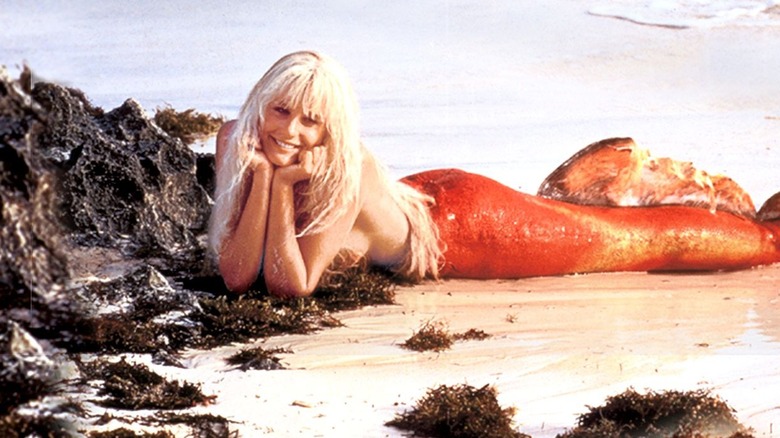
Considered one of the most exciting rom-coms of the '80s, "Splash" tells the story of a young man who crosses paths with a mysterious beauty who just happens to be the little girl who saved his life years ago. She is also, in fact, a mermaid. And while being a mythological creature does have its benefits, it makes the budding romance in this movie comedically complicated.
While some elements of the film haven't aged as well as others, "Splash" has a lot to love. First, Tom Hanks and Daryl Hannah do a fantastic job of portraying the romance between this quirky couple, while John Candy and Eugene Levy provide some of the movie's biggest laughs. But the most beautiful aspect of "Splash" is Howard's focus on his lead couple's earnest vulnerability, which makes it one of Howard's most accessible and beloved movies.
Willow
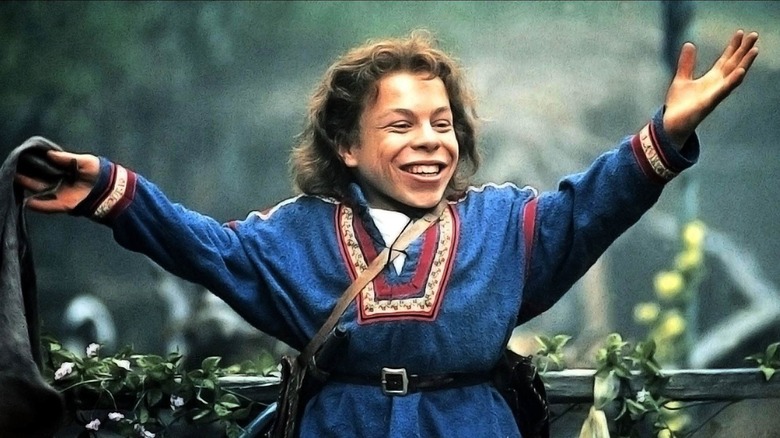
Released amid Hollywood's fantasy craze of the '80s, "Willow" is a film full of risks that, for the most part, pay off. It tells the story of a prophecy in which a baby girl will take down the likes of an evil queen. However, she needs help from some unlikely heroes, including a roguish swordsman (Val Kilmer), a cursed sorceress (Patricia Hayes), and a young magician named Willow (Warwick Davis). Together, they form a party and, alongside other creatures and warriors, work together to defeat Queen Bavmorda (Jean Marsh) before she gains full power.
With a story by George Lucas, "Willow" works because it mixes the most conventional and unconventional aspects of fantasy stories and presents them in a delightfully unusual package. Even though "Willow" suffers from a lengthy runtime and some awkward pacing, Ron Howard ultimately triumphs. He provides a charming balance of adventure, thrills, comedy, and genuine emotion, creating one of the most under-appreciated films of all time.
Parenthood
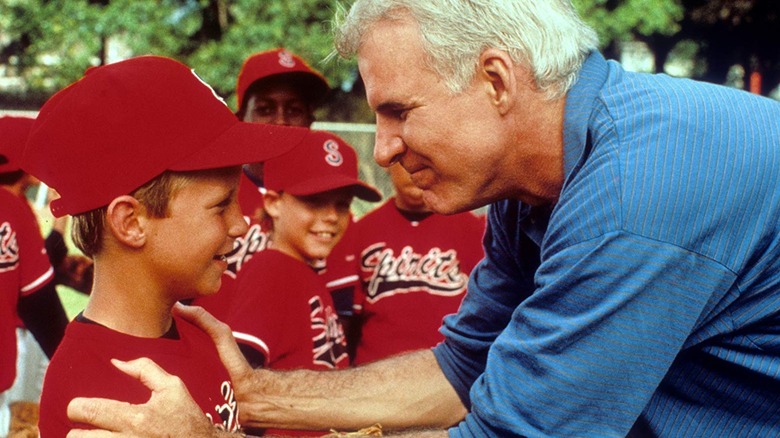
With an opening sequence that'll leave you either laughing or disgusted, "Parenthood" is one of those movies that seems inherently sweet on the outside but challenges its audience once it gets going. This is a film that takes a lot of risks, dealing with teenage pregnancy, puberty, depression, gambling addictions, and more. But with help from a cast made up of both comedic and dramatic greats, including Steve Martin, Dianne Wiest, and Tom Hulce, Howard handles the material like a pro.
While some aspects of "Parenthood" have aged better than others, this is a movie that is impossible not to love. Sure, its '80s setting gives it a dated charm, but that doesn't diminish how incredibly relatable it is for parents of any age. And with some unforgettable sequences and themes, plus surprising appearances by the likes of Keanu Reeves and a very young Joaquin Phoenix, there are many treats to be found in this delightful slice-of-life tale.
Rush
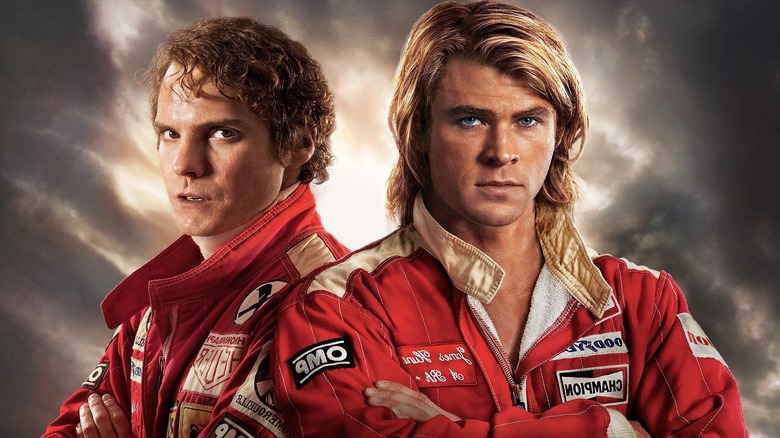
Focusing on the drag-out world of Formula One racing, "Rush" is easily the biggest hidden gem on Howard's filmography. The biographical film tells the story of the rivalry between James Hunt (played by Chris Hemsworth) and Niki Lauda (Daniel Brühl), two drivers who competed against each other during the 1976 racing season. Although some fans might think that "Rush" is too sports-oriented, under Howard's guidance this becomes a movie that transcends the genre's usual faults.
With excellent cinematography by Anthony Dod Mantle, Howard captures the thrills of Hunt and Lauda's races as if we, the audience, are right in the middle of the action. As equally energetic are the magnetic performances of both Hemsworth and Brühl, who prove that they are more than just the blockbuster stars most people know them as. When blended with excellent editing and a '70's aesthetic, "Rush" epitomizes Ron Howard at his best and most confident as a filmmaker.
Frost/Nixon
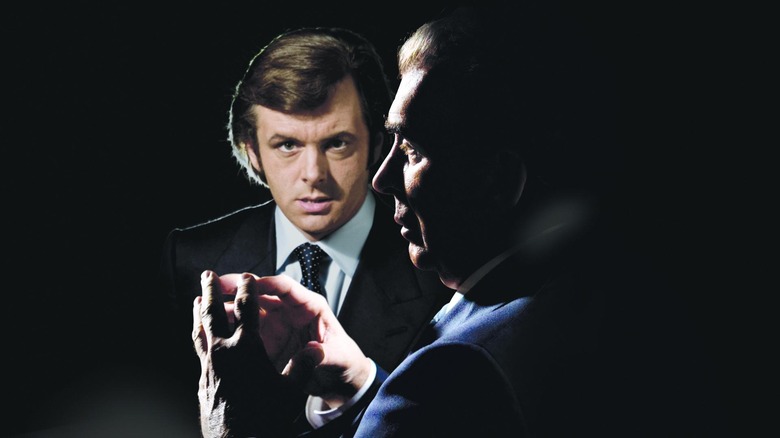
Still considered one of Ron Howard's greatest achievements, "Frost/Nixon" brings the stage play of the same name to life on the screen. As you might guess from the title, the film depicts days surrounding the famous television meetings between controversial American president Richard Nixon (played by Frank Langella) and British journalist David Frost (Michael Sheen). And with Ron Howard's inherently emotional directorial style, it's almost impossible to take your eyes off of this fascinating adaptation.
If one were to compare "Frost/Nixon" to a sporting event, it would be like watching two of the greatest heavyweights in the ring, battling it out for dominance. Both Langella and Sheen are masters at their craft, never once overstepping their boundaries. While the concept might sound inherently dull, Ron Howard has such a strong handle on the material that he manages to find just the right balance between the energetic and the poignant, making for one of the most thrilling cinematic conversations ever put on celluloid.
Apollo 13
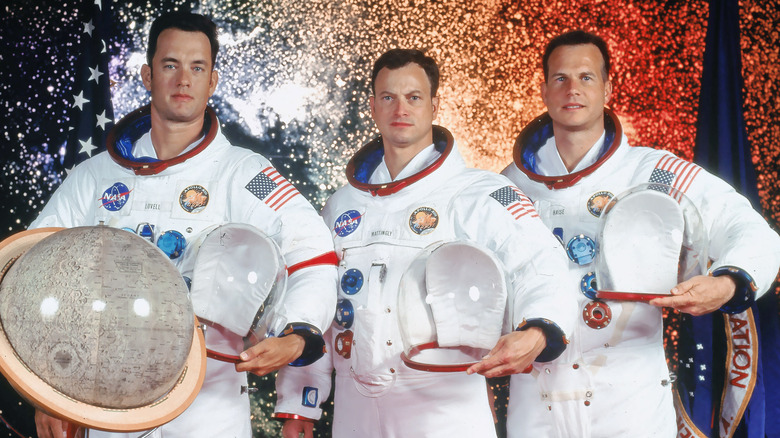
The movie that really made Ron Howard's film career, "Apollo 13" is a cinematic treasure. It tells the true story of the famous 1970 NASA mission, which ended only two days after blastoff due to a failed oxygen tank. With its endearing payoff, absolutely jaw-dropping depictions of space travel, and a memorable performance by longtime Howard collaborator Tom Hanks, "Apollo 13" is one of those once-in-a-lifetime movies.
To say that Ron Howard stuck the landing with this project -- pun very much intended -- would be a huge understatement. From the execution of its most intense sequences to the more intimate moments between its ragtag group of heroes, Howard perfectly captures the American pride that makes this story so powerful. Even for the most skeptical of filmgoers, it's near impossible not to fall under the spell of this earnest, classic piece of cinema. "Apollo 13" feels like a movie made in a bygone era, one that Howard clearly understands in the most genuine and passionate of ways.
Read this next: 'Free Guy' Arriving On Digital And Home Release Very Soon
The post Ranking every Ron Howard feature film from worst to best appeared first on /Film.
from /Film https://ift.tt/2WzkQh5
via IFTTT
Comments
Post a Comment